- Home
- Philip Pullman
The Book of Dust, Volume 1 Page 6
The Book of Dust, Volume 1 Read online
Page 6
“She came to consult you, sir?” said Coram to the experimental theologian.
Löfgren smiled. Coram noticed that his bony face was actually showing a faint blush.
“I used to think my old friend here was immune to the charms of the fair sex,” said Hallgrimsson. “In years gone by, Mr. Van Texel, he would hardly have noticed that she was a woman. But this time I think the dart of Cupid might actually have penetrated his carapace.”
“I don’t blame you, sir,” said Coram to Löfgren. “Speaking for myself, I’ve always found great intelligence in a woman a highly attractive feature. What did she want to consult you about, if I may ask?”
“Oh, you won’t get anything out of him,” said Hallgrimsson. “I’ve tried. Anyone would think he had signed an oath of secrecy.”
“Because you would make a joke of it, you old buffoon,” said Löfgren. “She came to ask me about the Rusakov field. Do you know what that is?”
“No, sir. What is it?”
“You know what a field is, in natural philosophy?”
“I’ve got a vague idea. It’s a region where some force applies. Is that it?”
“That will do. But this field is like no other we know of. Its discoverer, a Muscovite called Rusakov, was investigating the mystery of consciousness—human consciousness—that is, of why something entirely material, such as a human body—including the brain, of course—should be able to generate this impalpable, invisible thing, awareness. Is it material, this consciousness we have? We can’t weigh it or measure it. Is it something spiritual, then? Once we use the word spiritual, we don’t have to explain anymore, because it belongs to the Church then, and no one can question it. Well, that’s no good to a real investigator of nature. I won’t go into all the steps Rusakov took, but he finally arrived at the extraordinary idea that consciousness is a perfectly normal property of matter, like mass or anbaric charge; that there is a field of consciousness that pervades the entire universe, and that makes itself apparent most fully—we believe—in human beings. Precisely how is a question that is now being investigated with urgent excitement by scientists in every part of the world.”
“Every part of the world, that is, where they are allowed to,” said Hallgrimsson. “So you see, Mr. Van Texel, how easily this must attract the attention of the Consistorial Court.”
“I do, sir. It must have shaken the Church to its foundations. And this was what the lady came here to ask about?”
“It was,” said Löfgren. “Mrs. Coulter’s interest was unusual in someone who was not a professional scholar. She asked several very perceptive questions about the Rusakov field and human consciousness. I showed her my results, she absorbed everything I could tell her with instant understanding, and then she seemed to lose interest in me, to my sorrow, and started to flatter my colleague here.”
“Had she heard about this wine, then, sir?” said Coram.
“Ho ho! No, it wasn’t the wine, and it wasn’t my many personal attractions. She wanted to consult the alethiometer about her daughter, Mr. Van Texel.”
“Her daughter?” said Coram. “You mean the child she had by—”
“By Lord Asriel,” said Hallgrimsson. “Indeed. The very same. She wanted me to use the alethiometer to find out where the child was.”
“She doesn’t know?”
“Oh, no. It—I suppose I mean she—is under the supervision of the courts of law, but of course she could be anywhere. Apparently, it’s a matter of some secrecy. And now—remember you are just overhearing this, Mr. Van Texel—the mother has discovered that the child is the subject of a prophecy by the witches. She did not tell us that. We—ahem—overheard it from one of her servants. Mrs. Coulter is very eager to discover more about this, and especially to find out where the child is, so as to take her back into her…I was going to say into her care, but I think it would be more like custody.”
“I see,” said Coram. “And what did this prophecy say? Did you happen to overhear that?”
“No, alas. I believe it was simply that the child was of supreme importance in some way. That is all we heard. And her mother does not know what the prophecy foretells. Yes, a very remarkable woman. But should we now be expecting a call from the agents of the Consistorial Court, Mr. Van Texel?”
“I hope not. But these are trying times, Professor.”
Coram had asked enough; he had learned what he wanted to. After a few more minutes of conversation, he stood up.
“Well, gentlemen,” he said, “I’m greatly obliged to you. A splendid dinner, some of the finest wine I’ve ever tasted in my life, and a look at that remarkable instrument.”
“I’m very sorry I could do no more for you than roughly sketch how it works,” said Professor Hallgrimsson, getting to his feet with a little effort. “But at least you have seen the difficulties.”
“Indeed, sir. Has it stopped raining yet, I wonder?”
Coram went to the window and looked out at the street: empty to left and right, and very dark between the streetlamps, the roadway glistening wet.
“Can I lend you an umbrella?” said the professor.
“No need for that, thank you. It’s dry enough now. Good night, gentlemen, good night to you, and thank you again.”
—
And now came the second problem Coram had to deal with.
The rain had stopped, but the air was heavy with moisture and bitterly cold. A nimbus of mist surrounded every streetlight so that they looked like golden dandelion seed heads, and the drip of water from the eaves was unceasing as Coram and Sophonax walked slowly along the riverfront.
“Want to come up, Sophie?” said Coram, because dæmon or not, Sophonax was a cat, and the pavements were drenched; but she said, “Better not.”
“He still there?” Coram murmured.
“He’s keeping out of sight, but he’s there.”
Since they had left Novgorod the previous week, Coram had known they were being followed. It was time to put a stop to it.
“Same one, eh?”
“That dæmon can’t hide,” said Sophonax.
Coram was moving in a roundabout way towards the narrow little boardinghouse near the river where he’d rented a room, and now he slowed down by the water’s edge, where half a dozen barges were tied up at a stone embankment. It was half past midnight.
He paused there, hands on the wet iron railing, looking out across the black water while his dæmon wound herself round his legs, pretending to pester for attention but really watching every movement behind them.
To get to the boardinghouse, they’d have to cross a little iron footbridge that spanned the river, but Coram didn’t go that way. Instead, when Sophonax said, “Now,” he turned away from the river and walked swiftly across the road and into an alley between two stone-fronted buildings that might have been banks or government offices. He had noticed this alley before, when coming along the river towards the university—a quick glance, an almost automatic registering of possibility—and he’d seen that it was open at the other end. He wouldn’t get trapped here, but he might ambush whoever was following him. As soon as he was in the shadows, he ran on soft feet for the large rubbish bins halfway down, almost invisible in the darkness on the right-hand side.
There he crouched and reached inside the sleeve of his coat for the short, heavy stick of lignum vitae he carried along his left forearm. He knew how to use it in at least five lethal ways.
Sophonax waited till he had the stick ready before leaping up to his shoulder, and then, after delicately testing the top of the nearest dustbin in case it was loose, she climbed up there and lay flat, staring at the entrance to the alley with her cat eyes wide. Coram watched the other end, which opened into a narrow street of office buildings.
What happened next would depend on how skillfully the other man’s dæmon could fight. They had once overpowered a Tartar and his wolf dæmon when they were younger, and Sophonax was afraid of nothing, and swift and very strong; in a fight to the death,
the great taboo against touching another person’s dæmon didn’t count for much. In fighting for their life, Sophonax had more than once had to scratch and bite with fury at the hideous touch of a stranger’s hand and then afterwards wash herself in a near frenzy to get rid of the taint.
But this dæmon…
Sophie whispered, “There.”
Coram turned, careful and slow, and saw in silhouette against the lighted embankment the small head and hulking shoulders of a hyena. She was looking directly at them. She was a brute such as Coram had never seen: malice in every line of her, jaws that could crack bones as if they were made of pastry. She and her man were clearly trained at the business of following, because Coram was trained at the business of spotting it, and admired their skill; but as Sophie remarked, it wasn’t easy for such a dæmon to remain inconspicuous. As for what they wanted, Coram had no idea; if they wanted a fight, they’d get one.
He tightened his grip on the fighting stick; Sophie readied herself to spring. The hyena dæmon came forward a little, emerging into a full silhouette, and the man stepped silently forward after her. Coram and Sophie both spotted the pistol in his hand the moment before he flattened himself against the wall of the alley and disappeared into shadow.
Silence, apart from the eternal drip of water from the roofs.
Coram wished that Sophie had hidden behind the bin with him rather than crouching on the lid. She was too exposed—
A sound like a man spitting a pip—it was a gas pistol—followed at once by a great clatter as the bullet hit the dustbin and sent it tumbling over Coram and rolling across the alley. In the same instant, Sophie leapt away and landed by Coram’s side. A gas pistol wasn’t accurate over a distance but was deadly enough at close range: they’d have to neutralize it. They kept perfectly still. Slow footsteps came towards them, and they could hear the snuffling, grunting sounds of that creature and the clicking of her claws on the pavement, and then Coram thought, Now! and Sophie sprang directly at where the hyena’s head would be, claws out, and the man fired the gas pistol again twice, and one bullet scorched its way across Coram’s scalp. But it gave him a fix on where the man was, and he lunged forward and slashed with his stick at the darkness, connecting with something—arm? hand? shoulder?—and knocking the gun away.
Sophie’s claws, all of them, were firmly fixed in the hyena’s scalp and throat. The dæmon was shaking her head wildly, trying to dislodge her, and smashing her against the wall and the ground again and again. Coram saw the man’s shadow reach down as if to pick up the gun, and he sprang forward to lash down with the stick but missed and slipped on the wet ground and fell at the man’s feet, rolling away at once and kicking out hard towards where the gun had fallen.
His foot connected with something that skittered away over the cobbles, and the man kicked him in the ribs, horribly hard, and then grappled closely with him, trying for a choke hold, and he was wiry and tough, but Coram still had the stick in his hand and stabbed up with it as hard as he could into the man’s midriff. A gasping cough and the grip weakened, and then Coram felt a shock as the hyena finally managed to slam Sophie loose, tearing out a corner of her fur between those brutal teeth, and immediately fastened her massive jaws around Sophie’s head.
Instantly Coram twisted upright. The man fell away, and Coram swung his arm with every gram of strength he had towards the hyena. He had no idea where he hit her and was only concerned that he didn’t fatally damage Sophie, but the blow that landed was a cruel one: he heard bones snapping and saw in the dimness Sophie trying to tear herself away from the hideous jaws. Merciless now, Coram balanced and took aim, and lashed again and again at the hyena’s now-broken leg. He didn’t let up because the hyena had only to crush her mouth shut and he and Sophie would die in a moment.
So as the hyena opened her great jaws to scream, Sophie twisted away and scratched at the man’s hand, tearing his skin and drawing blood, even at the cost of her own disgust; and the man, crying out as the dæmon’s pain made his own nerves throb with agony, pulled away and dragged the hyena with him. The dæmon snarled and snapped her jaws in a frenzy of pain and misery, and Coram would have followed them and attacked the man himself, now that they were wounded, except when he tried to stand up, he fainted and fell down again.
He came to only a few moments later, in a sudden silence. Apart from himself and Sophie, the alley was empty. His head was spinning. He tried to sit up, but Sophie said, “Lie down. Let the blood back in your brain.”
“Have they gone?”
“They ran away. Well, he did. I don’t think she’ll ever run again. He was carrying her, and she was mad with pain.”
“Why…” He couldn’t finish, but she understood.
“You’ve lost a lot of blood,” she said.
He hadn’t felt much pain till she said that, but then he felt the line the bullet had made through his scalp suddenly reminding him of itself, and the warm wetness on his neck and shoulders beginning to turn cold as the fighting passion subsided, and he lay back to gather his strength. Then he sat up carefully.
“You hurt bad?” he said.
“I would have been. If those jaws had closed, I don’t think they’d ever have opened again.”
“We should have finished him. Damn, they were good, though. Think he was a Muscovite?”
“No. Don’t ask me why. Maybe…French?”
Coram stood up, holding on to the wall. He looked out towards both ends of the alley and said, “Come on, then. Back to bed. I don’t think we did very well there, Sophie.”
His ribs hurt furiously; he thought one of them might be broken. His scalp was bleeding thickly and felt as if a red-hot iron had been pressed against it. He scooped up his dæmon and she attended to the scalp wound, licking and cleaning him tenderly as they walked back to their boardinghouse.
After a wash in the only water available, which was icy cold, he put on a clean shirt and sat down at the little table. By the light of a candle, he composed a letter, saying everything as briefly as possible.
To Lord Nugent:
The lady came to Uppsala to consult the professor of experimental theology, Axel Löfgren. She asked him “several very perceptive questions” about the Rusakov field and its relation to human consciousness. He suspects she was acting on behalf of the CCD. Furthermore, she wanted a Professor Hallgrimsson to use his alethiometer to tell her where her child was. He either could not or would not, but in any case he did not. Apparently, the lady had heard that the child was the subject of a witches’ prophecy, but she did not know what it foretold. You will remember our good friend Bud Schlesinger. I spoke with him at the house of Martin Lanselius in Trollesund. He has gone further north to ask about this among some witches he knows and will contact you as soon as he returns. One further matter: I was followed from Novgorod by a man whose dæmon was a hyena. I did not recognize him, but he bore himself like a thoroughly trained agent. We fought and he got away, though the dæmon is wounded. I am curious about him.
CvT
Then he set about the laborious task of transcribing it into code and addressed it in an ordinary envelope to an insignificant part of central London. He carefully burned the original, and then he went to bed.
Dr. Hannah Relf sat up and pressed her hands into the small of her back, stretching painfully. She had been sitting for too long; she wanted to walk briskly for half an hour, but time with the Bodleian alethiometer was limited: there were half a dozen other scholars using it, and she couldn’t afford to waste some of her precious allocation in exercising. She could take a walk later.
She bent from side to side, loosening her spine, stretched her arms above her head and rotated her shoulders, and eventually felt a little less stiff. She was sitting in Duke Humfrey, the oldest part of the Bodleian Library in Oxford, and the alethiometer lay on the desk in front of her among a scatter of papers and a heap of books.
The work she was doing was threefold. There was the part she was supposed to be doing, the pa
rt that justified her time with the instrument, which was an investigation into the hourglass range of meanings. Already she had added two more floors, as she thought of them, to the levels of significance reaching down into the invisible depths, and she was on the track of a third.
But second, there was the secret work she was doing on behalf of an organization known to her as Oakley Street; she supposed from its address, though there wasn’t an Oakley Street in Oxford, so it was possibly in London. She’d been recruited for this two years before by a professor of Byzantine history named George Papadimitriou, who had assured her (and she believed him) that the work was both important and on the side of liberalism and freedom. She realized that Oakley Street was a branch of some sort of secret service, but since all she did was interpret the alethiometer on their behalf, she knew very little more. However, she read the papers, and it wasn’t hard for an intelligent person to see what was going on in the politics of her country. The questions Oakley Street asked her were varied, but a lot of them had recently trod closely towards subjects that were forbidden by the religious authorities; she knew quite well that if the CCD, or anyone like it, were to find out what she was doing, she would be in serious trouble.
And third, and most urgent, there was a question she had been asking for a week: Where was the acorn? She had no idea how the message in its little carrier had always arrived so dependably behind the stone in the University Parks, or wherever she was to collect it, but it should have appeared some time ago. And now she was becoming anxious.
Hence the question she was asking. It hadn’t been easy to frame, and the answer wasn’t easy to interpret, but then they never were, though she was becoming more sure-footed among the levels of meaning than she used to be.
But this afternoon, as the gray light faded outside the six-hundred-year-old windows of Duke Humfrey and the little anbaric lamp above the desk glowed more warmly, she thought she had the final part of an answer. After a week’s labor, she had the three stark images: boy—inn—fish. If she was a really practiced reader, she thought, each of those ideas would be surrounded by a phalanx of qualifying detail, but there it was: that was all she had to go on.

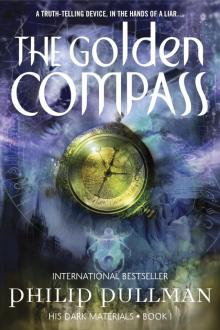 The Golden Compass
The Golden Compass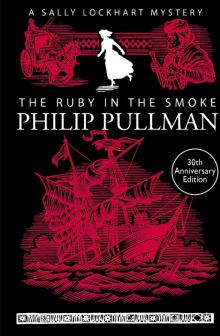 The Ruby in the Smoke
The Ruby in the Smoke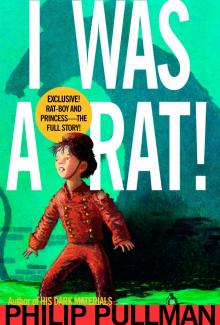 I Was a Rat!
I Was a Rat! Once Upon a Time in the North
Once Upon a Time in the North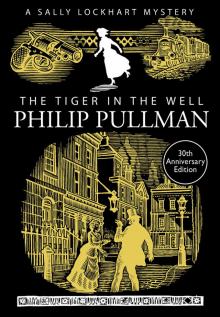 The Tiger in the Well
The Tiger in the Well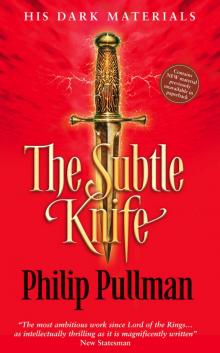 The Subtle Knife
The Subtle Knife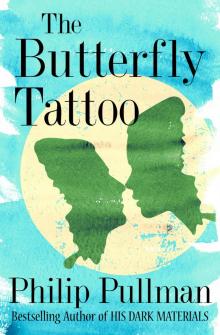 The Butterfly Tattoo
The Butterfly Tattoo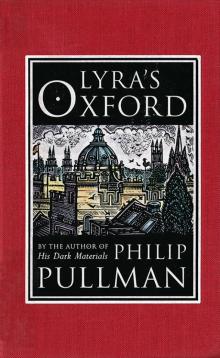 Lyra's Oxford
Lyra's Oxford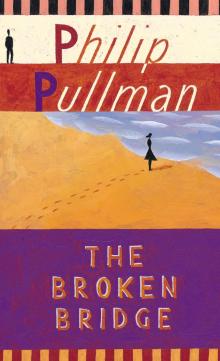 The Broken Bridge
The Broken Bridge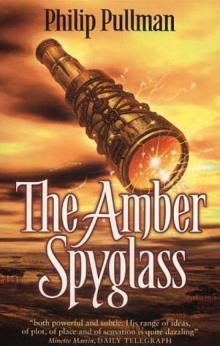 The Amber Spyglass
The Amber Spyglass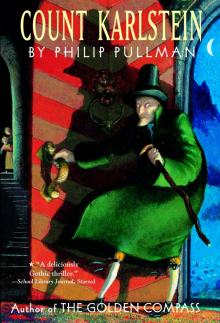 Count Karlstein
Count Karlstein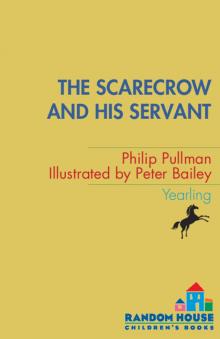 The Scarecrow and His Servant
The Scarecrow and His Servant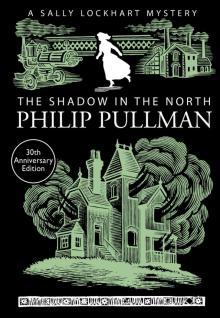 The Shadow in the North
The Shadow in the North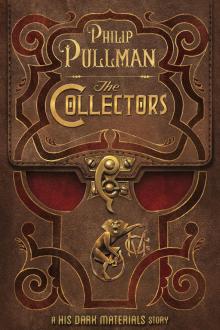 The Collectors
The Collectors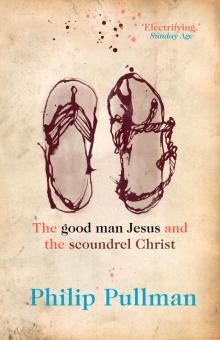 The Good Man Jesus and the Scoundrel Christ
The Good Man Jesus and the Scoundrel Christ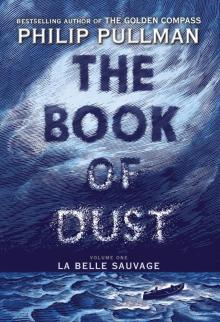 La Belle Sauvage
La Belle Sauvage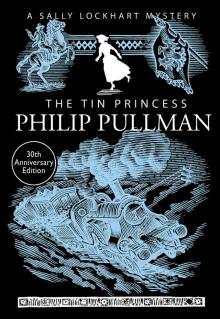 The Tin Princess
The Tin Princess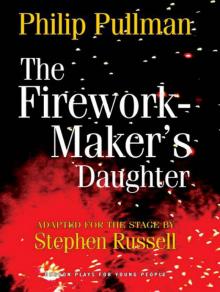 The Firework-Maker's Daughter
The Firework-Maker's Daughter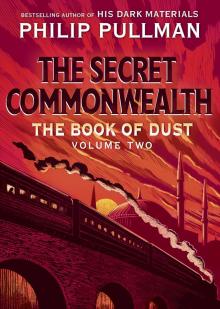 The Book of Dust: The Secret Commonwealth (Book of Dust, Volume 2)
The Book of Dust: The Secret Commonwealth (Book of Dust, Volume 2)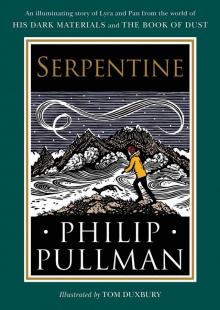 Serpentine
Serpentine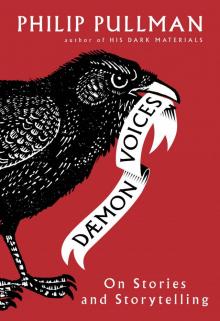 Daemon Voices
Daemon Voices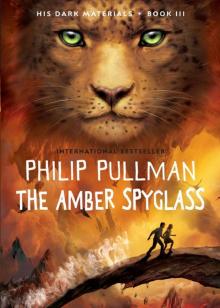 The Amber Spyglass: His Dark Materials
The Amber Spyglass: His Dark Materials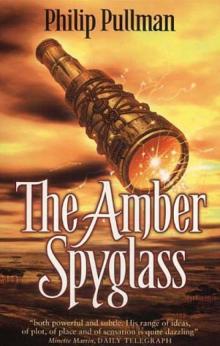 The Amber Spyglass hdm-3
The Amber Spyglass hdm-3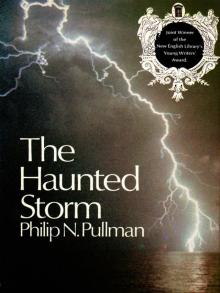 The Haunted Storm
The Haunted Storm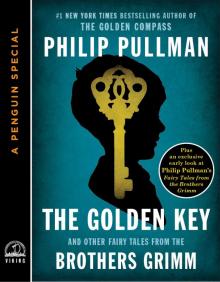 The Golden Key
The Golden Key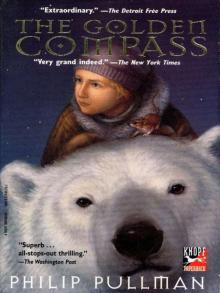 His Dark Materials 01 - The Golden Compass
His Dark Materials 01 - The Golden Compass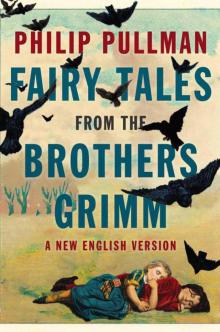 Fairy Tales from the Brothers Grimm: A New English Version
Fairy Tales from the Brothers Grimm: A New English Version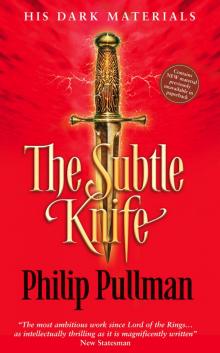 His Dark Materials 02 - The Subtle Knife
His Dark Materials 02 - The Subtle Knife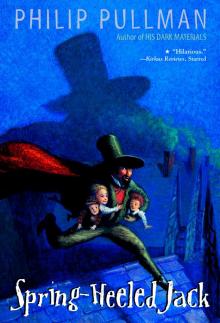 Spring-Heeled Jack
Spring-Heeled Jack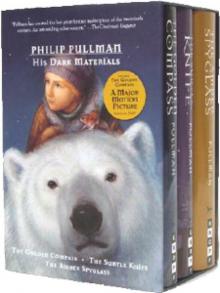 The Golden Compass hdm-1
The Golden Compass hdm-1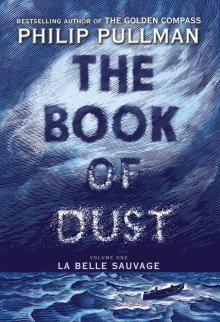 The Book of Dust, Volume 1
The Book of Dust, Volume 1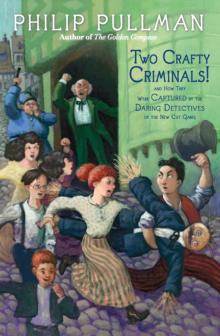 Two Crafty Criminals!
Two Crafty Criminals!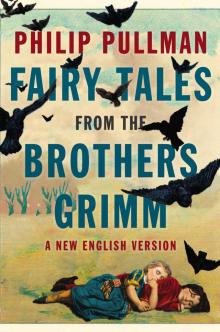 Fairy Tales from the Brothers Grimm
Fairy Tales from the Brothers Grimm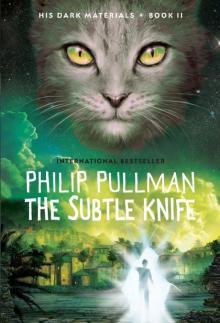 The Subtle Knife: His Dark Materials
The Subtle Knife: His Dark Materials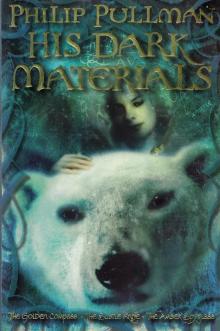 His Dark Materials Omnibus
His Dark Materials Omnibus The Golden Compass: His Dark Materials
The Golden Compass: His Dark Materials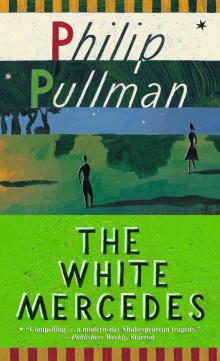 The White Mercedes
The White Mercedes